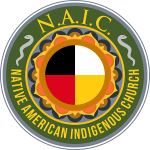Georgia State Exemptions
Georgia State Medical Board Exemptions
JOIN NAIC!
Medical Practice Act 2009: Article 2. Medical Practice § 43-34-20. Short title
This article shall be known as the “Medical Practice Act of the State of Georgia.”
HISTORY: Code 1981, § 43-34-20, enacted by Ga. L. 2009, p. 859, § 1/HB 509.
§ 43-34-22. Practicing medicine without a license; titles and abbreviations;
exceptions:
(b) Nothing in this chapter shall be construed to prohibit:
(1) Gratuitous services in cases of emergency;
(2) The practice of the religious tenets or general beliefs of any church
whatsoever;
TITLE 43. PROFESSIONS AND BUSINESSES
CHAPTER 39. PSYCHOLOGISTS
43-39-7. Practicing without a license; use of title; exceptions:
(4) Nothing in this chapter shall be construed to limit the activities and services of a person in the employ of or serving for an established and recognized religious organization, provided that the title “psychologist” is not used by a person not licensed and that the person does not imply that he or she is a psychologist;
TITLE 43. PROFESSIONS AND BUSINESSES
CHAPTER 24A. MASSAGE THERAPY PRACTICE
O.C.G.A. § 43-24A (2006)
§ 43-24A-1. Short title
This chapter shall be known and may be cited as the “Georgia Massage Therapy Practice Act.”
§ 43-24A-19. Exceptions
Nothing in this chapter shall be construed to affect, restrict, or prevent the practice, services, or activities of:
(5) A person who restricts his or her practice to the manipulation of the soft tissue of the human body to hands, feet, or ears who does not have the client disrobe and does not hold himself or herself out as a massage therapist;
(6) A person who uses touch, words, and directed movement to deepen awareness of existing patterns of movement in the body as well as to suggest new possibilities of movement while engaged within the scope of practice of a profession with established standards and ethics, provided that his or her services are not designated or implied to be massage or massage therapy;
(7) A person who uses touch and movement education to effect change in the structure of the body while engaged in the practice of structural integration, provided that he or she is a member of, or whose training would qualify for membership in, the International Association of Structural Integrators and provided that his or her services are not designated or implied to be massage or massage therapy;
(8) A person who uses touch to affect the energy systems, polarity, acupoints, or Qi meridians, also known as channels of energy, of the human body while engaged within the scope of practice of a profession with established standards and ethics, provided that his or her services are not designated or implied to be massage or massage therapy;
Conclusions:
For NAIC-specific applications, see that the Massage Law is clearly under the provisions of the State Medical Board: “Medical Practice Act 2009: Article 2. Medical Practice § 43-34-20. Short title.” This article shall be known as the “Medical Practice Act of the State of Georgia.” which under Article (2) clearly states that exemptions are extended to “(2) The practice of the religious tenets or general beliefs of any church whatsoever;”.
Additionally, the TITLE 43. PROFESSIONS AND BUSINESSES CHAPTER 39. PSYCHOLOGISTS: 43-39-7. Practicing without a license; use of title; exceptions: “(4) Nothing in this chapter shall be construed to limit the activities and services of a person in the employ of or serving for an established and recognized religious organization, provided that the title “psychologist” is not used by a person not licensed and that the person does not imply that he or she is a psychologist;” applies the same pattern of religious practice for therapeutics and healing to psychological services and counseling with the restriction that the minister/ medicine person does not inappropriately use the title “Psychologist.”
The Massage Therapy Law is not only under the Authority of the State Medical Practices act but also provides exemptions from licensing in § 43-24A-19. Exceptions, (6), (7), (8) which, even if there were no Religious exemptions (which there are), would more than sufficiently cover the ministerial scope of practice for our Chirothesia and or Traditional Healing and medicine practices.
Therefore we can reasonably assume that the Spiritual, Religious, Ceremonial, Sacredotal, Ministerial, and Pastoral practices of Indigenous and traditional and or tribal/ familial counseling and healing as ordained tenants authorized by the Native American Indigenous Church Inc. 508c(3)1(A) FBO Church/ Tribal Organization are exempted from the Medical Practices Act of the State of Georgia. This applies to the full scope of practice and training as authorized by N.A.I.C.
N.A.I.C. Authorized A.B.M., A.F.M., and C.H.T. ministers practicing following their appropriate authorization and scope of practice and not claiming or advertising inappropriately that they are specifically Licensed “Medical Doctors,” “Massage Therapists,” and or “Psychologist” are not required to obtain or hold a State License for the practice of Native American and or Indigenous Traditional Healing of any kind.

